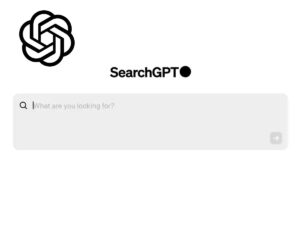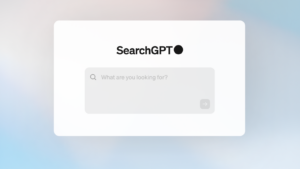
Credit: Geekadam
While speaking at the intimate and immensely valuable Zappos Insights event (Zappos Live), I shared thoughts of how the culture of any company or brand is as strong as the individual personification of it.
Everything starts and fortifies with you. Your actions and words online are indeed extensions to how people interpret, perceive, and react to the brand your represent. Concurrently, you also represent your personal brand – the digital identity that’s established through the collection of digital shadows you cast across the social web.
During my discussion, I asked those in the room to stop and think a bit about what it is they stand for, believe in, and aspire to become and whether or not the search results in Google, twitter.com/yourusername, Search.PeopleBrowsr.com or Collecta might reinforce their intentions or paint an unexpected and possibly surprising picture.
Everything we share online is indexed on the Web for years to come. When we Tweet, upload videos and pictures, post on blogs and comments, update our status on social networks, we cast a digital shadow that parallels our activities and mimics our convictions in real life. This digital shadow is strewn across the web only to be reassembled through the search pursuits of others – whether they’re prospective partners, employers, employees, customers, influencers, or stakeholders.
Curiosity Killed the Candidate?
A recent study performed by CareerBuilder.com validates the behavior of identity sleuthing and year over year patterns forecast subsequent ubiquity.
The professional network asked 2,500 hiring managers whether they search Facebook or other social networks to discover information about prospective employees. An astonishing, but not unexpected, 38-percent of respondents said yes. In comparison, only 22% of hiring managers acknowledged searching social networks in 2008.
You can bet that Google is part of the process as well.
In addition, 24%, which represents one in four hiring managers interviewed, conceded that the results contributed the decision to hire a candidate. 34% however, dismissed candidates based on what they uncovered.
This is a trend that’s years in the making however.
In 2006, a survey of 100 executive recruiters conducted by ExecuNet surfaced the shocking truth that Seventy-seven percent of recruiters reported using search engines to find background data on candidates. Of that number, 35 percent eliminated a candidate because of what they found online.
A Rude Awakening
Individuals who are currently employed are also at risk of losing their job based on their behavior on social networks and what they choose to share online.
Earlier this year 16-year-old Kimberley Swann posted a series of updates that revealed her discontent with her menial tasks on Facebook:
“first day at work. omg (oh my God)!! So dull!!”
“all i do is shred holepunch n scan paper!!! omg!”
“im so totally bord!!!”
Two days after her posts hit the social web, she was fired.
British Airways staff created a webwide uproar when they called passengers “smelly and annoying” and Virgin Atlantic fired 13 for complaining about passengers on Facebook.
Of course, there’s also the widely discussed example of the “Cisco Fatty” incident.
Connor Riley took to Twitter after receiving a job offer from tech giant Cisco, “Cisco just offered me a job! Now I have to weigh the utility of a fatty paycheck against the daily commute to San Jose and hating the work.”
Moments later, Cisco employee Tim Levad saw the update and responded, “Who is the hiring manager? I’m sure they would love to know that you will hate the work. We here at Cisco are versed in the Web.”
The incident evolved and unfolded on Twitter. She later apologized on her blog and noted that she already turned down the offer. Cisco remained supportive throughout the ordeal.
In the case of Philadelphia Eagles employee Dan Leone, he was fired after posting his unhappiness with the Eagle’s loss of player Brian Dawkins to the Denver Broncos, “Dan is [expletive] devastated about Dawkins signing with Denver … Dam Eagles R Retarted!!”
The D.C. Department of Employment Services fired a contractor who worked with the city’s youth summer jobs program after a string of TMI Tweets that referred to his job location as “ghetto” and his ability to clock hours in without working:
“In america’s ghetto anacostia… If I get scared i will just yell chinese carry out! They will not shoot me.”
“thank goodness my boss is making things easy, he told me to pretend to do work so he can mark me down for hours.”
I think we’re all aware of the careless and reckless Dominos employees who posted a YouTube video that showed a cook disgustingly defiling the food designated for customer orders.
And, there are certainly no shortagees of firings because of posts on MySpace.
Non-tenured high school teacher Jeffrey Spanierman was fired after hosting an inappropriate MySpace page that contained nude photos of men, foul language and inappropriate conversations with students. He sued and later lost his case.
Two employees of Houstons Restaurant were canned when managers received access to information in a private MySpace group that divulged derogatory statements about managers, customers, and also private information about upcoming product knowledge tests. The two filed suit claiming invasion of privacy. Hillstone Restaurant Group, which owns the Houstons chain defended its decision with a statement to CNN, “This is not a case about ‘cyber-snooping,’ the First Amendment, or privacy. It’s about two staff members who were let go for unprofessional conduct, including disparaging comments about our guests, and sharing a product knowledge test before it was administered. This misconduct was voluntarily brought to light by a member of the online group.”
While we enjoy freedom of speech, we must still be mindful of what we publish and share. Even if it’s in a seemingly private and protected environment.
Getting an Education in Online Behavior
It’s not just a crystal ball for employers. Everyone searches the names of those who either intrigue them or emerge as a potential contender for collaboration or interaction.
Why not? It’s only smart business to gather intelligence and research before an introduction or engagement.
Kaplan Test Prep released a report last year that indicated that one in 10 colleges and universities explore social networks and common search engines when considering aspiring students for admission.
Fortunately or unfortunately, this practice of investigating people will not dissipate. The only elements that will change are the increases in the total percentages of search queries performed by decision makers.
It’s not all bad news however. The truth is that the search experience related to you is defined by you. Acceptance of this reality represents half the distance to crafting a more strategic and effective representation of who you are and what you stand for online and in the real world.
Deleting your profiles is not the answer. Deleting offending material and updating your privacy settings, on the other hand, is a good place to start. The truth is however, that it takes more than editing what exists today. In order to truly shape our personal brands as they’re viewed remotely, from a distance, and without our explicit input, we must take the reins and contribute to its silhouette at the very least.
We are in control of the digital shadow that materializes when the spotlight is cast upon us.
Take this opportunity to showcase accomplishments, strengths and talents. Reinforce what it is you stand for as well as what moves you. In many ways your profiles and the material you share online contribute to a digital resume, whether you agree or disagree. It’s there, right now, talking about you, without your direction. Opportunities that may have presented themselves to us never materialized because of our digital shadows. So, do something about it. Just don’t lose who you are in the process.
Yes, we’re still human beings. Yes, we have fun. Yes, we do things we don’t want the rest of the world to know about.
Decide whom it is you’re trying to impress with your social profiles and updates and realize that answer may change over time. Just “think” about what it is you’re sharing and why before you upload to the public Web. Anything not conducive to the reinforcement of a strategic outward facing personal brand should be relegated to the private viewing of your bona fide, genuine social graph. Again, there are privacy settings within each social network and you govern who sees what. Let the privacy controls and the corresponding content serve as the church and state of your online persona.
There are benefits and consequences associated with each bit of content you share, even if they’re not immediately discernible.
And parents, it’s never to early or too late to help guide your children.
Start monitoring their online behavior as soon as they start spending significant time online. Actively Google them to assess the results. Help them create and craft content that serves as a placeholder for their identity now and in the future.
Who we are and who we want to be often reside at opposite ends, where the space between is distanced or narrowed by our actions, content and words.
With Social Media comes great responsibility…
What does your profile or search results say about you?
—
Kindle users, subscribe to PR 2.0 here to receive this feed on your device.
—
Now available (click to purchase):


—
pr pr+2.0 pr2.0 public+relations marketing advertising interactive social+media socialmedia brian+solis social media media2.0 media+2.0 2.0 smo social+media+optimization marcom communication publicity advertising interactive spin brand branding customer service customer service personal brand personal identity id college university employer employee candidate job search seo social network career reputation persona





Very interesting insights.
Thank you!
Food for thought…. Loved it!
Appreciate it Yvonne!
Exceptional advice, and applicable to just about everybody on the planet. Thank you for writing it.
Kevin, thank you. Let's get this in front of as many people as possible!
Very interesting post. I can't help but linking it in my mind to discussions I have been having recently about the importance of transparancy and how the lack of is harmful to your online reputation. Your digital shadow – control it and make it real. Thanks Brian.
Well said!
Great post! And right on!
I think in the future resumes will become obsolete as social networks and search engines become even stronger than they are today. Even now, for the most part, resumes serve as a business card highlighting candidate’s contact info to perform a Google search. Reviewing results on Google allows hiring managers to better understand a candidate’s true personality and communication skills. None of that shows on resumes. Your professional future lies within the portrayal of your own web presence that is created by you. Always consider what your boss would think if you posted this or uploaded that.
Thanks for the insight.
Odd as this might sound in current context, some of us are actually just as concerned with making a positive impact on the world – and living a life of honesty and integrity and service to others – as we are in “shaping” our “personal brand” so that we look like whitebread, vanilla, boring candidates for low-level employment at a mainstream company. Yes, I know – how utterly silly to be worried about something other than “trying to fit in” – but you might even say Western culture has a long tradition of people caring about more than just, you know, being employable.
If everyone on the web followed this advice – hide anything interesting or non-mainstream or remotely “controversial” – behind the private walls of a for-profit “social network,” that would certainly succeed in creating a castrated, non-threatening, utterly self-censored public internet. And that, in turn, might help big companies to sell more crap to people and make more money. So, if that's the be-all and end-all of the existence of human life, then by all means let's all engage in frantic self-censorship to ensure that nobody things we're not (gasp!) like everyone else.
That said, I suspect a few of us will keep speaking our minds, keep presenting ourselves HONESTLY online – good and bad – rather than just shoving airbrushed caricatures ourselves forward as if they were real, keep exploring those scary “controversial” topics, and keep rejecting self-censorship. Ironically, it's often people who actually have the balls to be who they are, to speak with integrity instead if with mealy-mouthed corporate mumblewords, and to actively reach OUT in furtherance of spreading genuine ideas and experience who are considered “interesting” by the sheeple who are more interested in being spectators than being participants.
In other words, if you're going to self-neuter so that you look appropriately boring and content-free in your “public personal brand,” then that just leaves more room for those of us who choose to be who we are and let the world think what it will. I.e. followers – and leaders.
Fausty | http://www.cultureghost.org
There's another aspect to this. A favourite saying of mine is 'be careful of what you wish for. You might just get it'. Many people spend lifetimes in careers which ultimately give them little personal fulfillment. Maybe they make money, but little happiness. Just maybe having our 'real' self transparant to people who will influence our future direction might make it more likely that we end where we should be not somewhere we think we should.
geesh..now that we're all being “monitored” by corporate big brother, we can't have any fun online anymore..bring back the anonymous chatrooms of yesteryear where my profile was a sham and no one could trace it back to my real world self!
I hear you. It's interesting how in the chatroom and IM culture we maintained a secret or alternate identity, but in social media (a very public forum) we are ourselves. However, I suggest that we diagnose ourselves with multiple personality “order” so that we can maintain multiple personalities online related to work and personal activity (including private interaction).
great stuff brian. one thing i'd add…as a parent of two young children, it's definitely something i'm sure i'll have to teach them about someday, but it's also my responsibility right now to respect their identities and privacy. i stopped blogging about them, and only twitter about them on my private, locked profile. i decided that someday they may not want their friends (or future employer) to read the story about the time their diaper exploded or they did/said something silly, even though it was really cute at the time!
great stuff brian. one thing i'd add…as a parent of two young children, it's definitely something i'm sure i'll have to teach them about someday, but it's also my responsibility right now to respect their identities and privacy. i stopped blogging about them, and only twitter about them on my private, locked profile. i decided that someday they may not want their friends (or future employer) to read the story about the time their diaper exploded or they did/said something silly, even though it was really cute at the time!
I've been telling my college age son this for some time now and this post will be headed his way in a moment. Thanks for putting it in new context.
Great post and something that we need to be reminded of more often. Have been telling my college aged kids this for a while. I'll share again just to remind them…the internet is forever!
I think it’s really dumb to look at someone’s social site and then be able to fire them about anything they have said. I just don’t get it. I mean, it’s not like you’re a major celeb who people are watching or something. That’s over the top!
very thought provoking, to say the least.